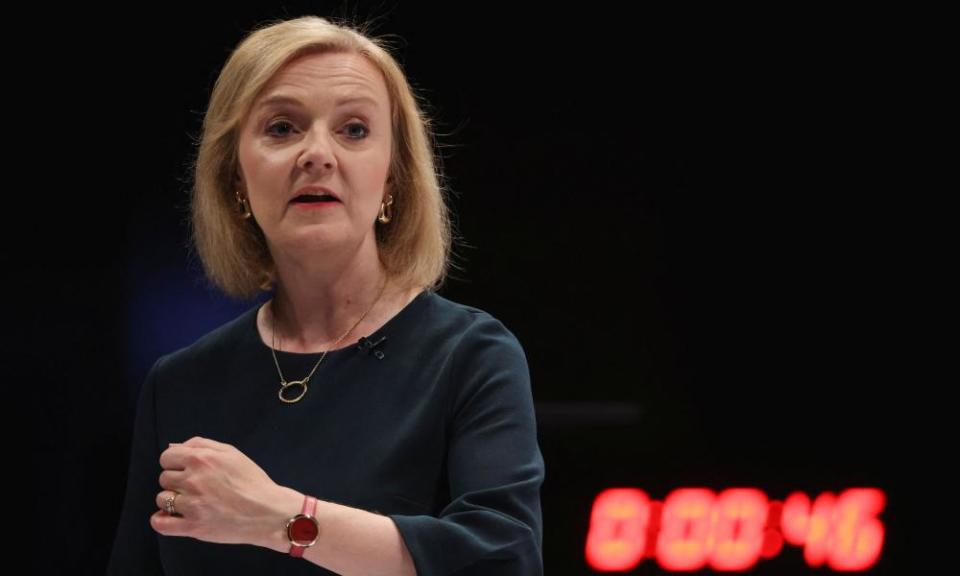What problem is Liz Truss’s plan for regulators solving?

In a world of soaring energy bills, polluted rivers, labour shortages, plunging levels of business investment, strikes and an underfunded health service, give thanks for small mercies. At least we’re not worrying about the banks going bust.
That assumption wasn’t necessarily safe when Covid struck in early 2020. The share prices of the likes of Lloyds Banking Group and NatWest halved almost overnight.
That they’ve recovered all the lost ground can be explained by a few factors: the massive sums spent by government on furlough schemes, bounce-back loans and so on; the fact that unemployment, one traditional driver of lending write-offs, has remained low; and the higher interest rates that help banks’ lending margins.
But maybe there’s another factor in the background. Perhaps the Prudential Regulation Authority (PRA), the bit of the Bank of England responsible for policing the health of the financial system, has done a half-decent job.
It’s still early days, of course. But, on the other side of the recession, the banking system should be infinitely better equipped to fund recovery than it was in 2008-09, when Northern Rock, HBOS, Royal Bank of Scotland had fallen like dominos.
The PRA was created out of that crisis. The failed Financial Services Authority and its light-touch regime was disbanded in 2013 under George Osborne’s reforms. Big-picture regulation of the biggest banks and insurers was handed back to a beefed-up Threadneedle Street. The Financial Conduct Authority (FCA) was formed to do the rest of the old FSA’s work – regulating markets, policing conduct, looking out for consumers and overseeing smaller financial firms.
One can still point to shocking failings, naturally. Exhibit A would be the FCA’s oversight of London Capital & Finance, where the regulator was asleep at the wheel as savers, enticed by promises of fat but safe returns, lost their shirts.
Then there was the FCA’s investigation into the gouging of small and medium-sized business by RBS’s GRG unit in 2008-13; it read like an exercise in buck-passing. But the financial architecture itself – the division of responsibilities between the PRA and the FCA – still seems sound. Nobody, surely, would want to re-create the unlamented FSA.
Well, one person, it seems. The FT reports that Liz Truss, the Tory leadership frontrunner, has a plan to merge the FCA and the PRA, throwing the much-smaller Payments Systems Regulator (already part of the FCA) into the mix. This sounds a seriously bad idea.
What problem is it trying to solve? As ever with the Tory leadership show, details around the wilder ideas are sketchy. This one seems to owe something to Truss’ reported desire to conduct a “war on technocrats” or to cut the Bank of England down to size.
Or perhaps she just doesn’t like Andrew Bailey, the governor, or Nikhil Rathi, chief executive of the FCA, both of whom seem alert to the risks in attaching a “growth” or “competitiveness” mandate to the job of financial regulation.
If Truss has serious arguments to make, let’s hear them. But another round of institutional upheaval in financial regulation sounds like a futile revolution. Refinements are always possible but, unlike in 2008, the basic set-up hasn’t obviously failed.
Messing about with the PRA would be particularly pointless. It is the one body capable of facing down self-interested bankers when they scream, as with the temporary ban on paying dividends to shareholders during the early months of Covid, that regulators are making their shares “uninvestable”.
A prudential regulator should be prudent. Pressure from boardrooms and politicians to march to a “competitive” beat caused half the trouble with the old FSA.
The cost of living crisis this winter is plainly the top priority for an incoming prime minister – then she can take her pick from any of the other enormous challenges for the UK economy listed above. A re-arrangement of financial regulatory bodies should not be on the list.
Not just another story
Note a detail in the tale of the US university student who made a $110m profit in a month by buying shares of Bed Bath & Beyond, an ailing US homeware retailer thrust into the role of “meme” stock: the share price fell 25% soon after he sold.
Jake Freeman bought at $5.50 in July, so would still have made very decent money if he’d got out at Thursday’s $19, rather the reported level of around $27 on Tuesday. He was either brilliant or lucky in his timing.
The other important detail is that he started with a stake of $25m, courtesy of “friends and family”. Not everybody has access to such sums for a death-or-glory punt.

 Yahoo Finance
Yahoo Finance 